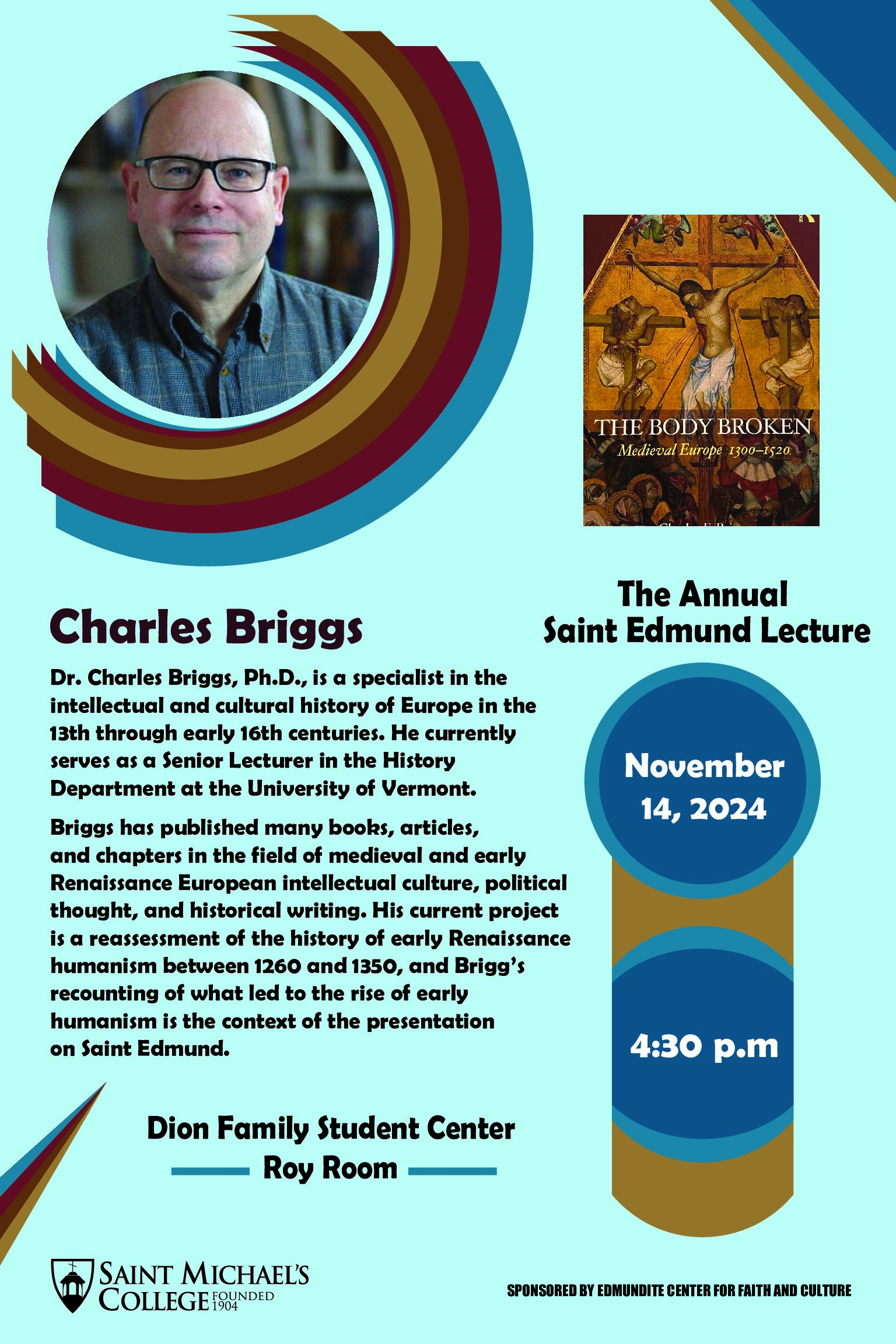Events Calendar

- This event has passed.
Annual Saint Edmund Lecture Sponsored by the Edmundite Center for Faith and Culture

Annual Saint Edmund Lecture
Sponsored by the Edmundite Center for Faith and Culture
Thursday, November 14, at 4:30 p.m.
Roy Room, Dion Student Center
Dr. Charles Briggs, PhD, a professor of medieval history in the Department of History at the University of Vermont, will deliver the 2024 Annual Saint Edmund Lecture on Thursday, November 14, 2024, at 4:30 p.m. in the Roy Event Center in the Dion Family Student Center (third floor). The title of the presentation is: “A Question of Counsel: Edmund of Abingdon’s Speculum religiosorum and Medieval ‘Mirror’ Literature.”
After growing up in New York, Dr. Briggs majored in history at Grinnell College in Iowa, before going on to receive his M.Litt. from the University of Edinburgh in Scotland and Ph.D. from the University of North Carolina at Chapel Hill (1993). After a decade and a half of teaching and administration at Georgia Southern University, where he was Professor of History, Briggs returned to the more amenable climes and landscape of the Northeast. A specialist in the intellectual and cultural history of Europe in the thirteenth through early sixteenth centuries, he teaches courses in late medieval and early modern European history, global history, historical methods, and the history of the book.
Saint Edmund of Abingdon is the patron of the Society of Saint Edmund, the founding religious community of priests and brothers who established Saint Michael’s College. The Annual Saint Edmund Lecture honors Saint Edmund not only as the patron of the Edmundite but more specifically for his major work, Speculum religiosorum (The Mirror of Religious), which is a significant writing by Saint Edmund of Abingdon, who was Archbishop of Canterbury in the early 13th century. Written around 1213-1214, this text serves as a spiritual guide for religious life, combining catechetical material with contemplative practices. The work draws on the teachings of early Christian authorities like Augustine and Gregory, as well as mystical writers such as Bernard of Clairvaux. It was originally composed in Latin and later translated into Anglo-Norman French and Middle English, reflecting its widespread influence and appeal.